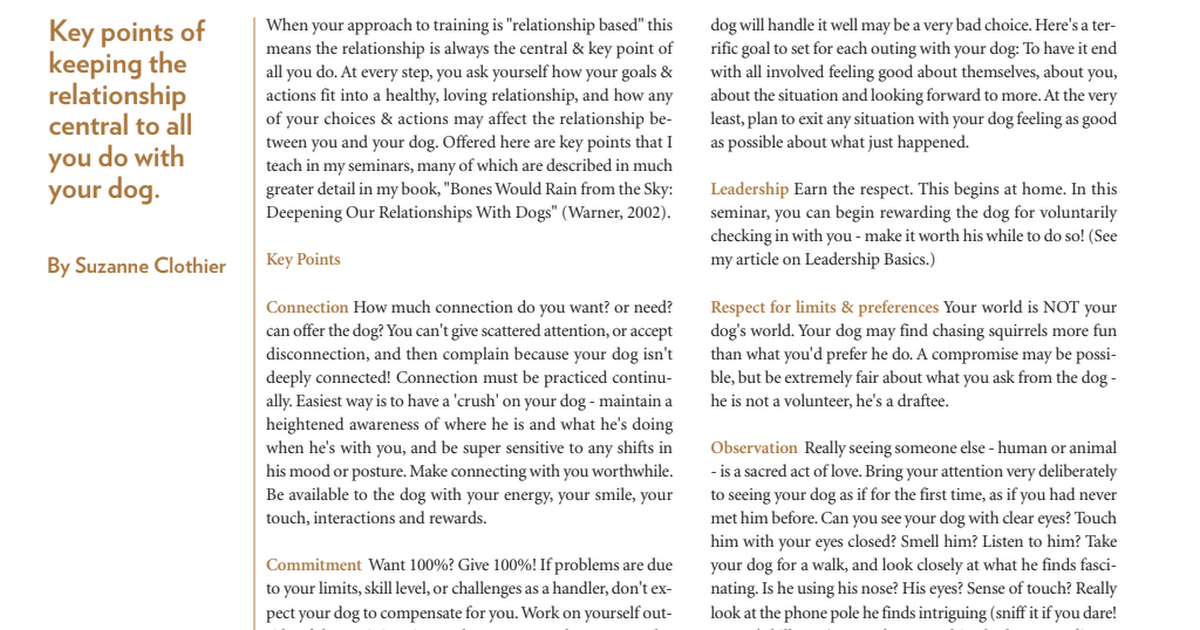- Joined
- Feb 23, 2017
- Messages
- 6,411
Hi everyone-
This post is about the topic for our Monday 9/9/19 Empower Hour! webinar (which is archived in your member area if you missed it).
It's about understanding your pets as much as training as this will help prevent and treat behavior challenges.
There's also another forum thread about training my own rescue pup Archie that has some very useful tips from @jsqueglia
Here it is if you'd like to read it:
 www.holisticactions.com
www.holisticactions.com
We are discussing this important topic as part of our rescue, shelter and training series because problematic behaviors are among the top reason why pets are given up to a shelter.
The top issues are inappropriate elimination for cats (peeing or pooping outside the litter box) and "aggression" for dogs.
Here's the beginning of the conclusion of a detailed article about re-homing:
If you'd like to read the full article, it's also in your HMDM research folder:
The article is not specifically about having a great relationship with your pet, but having one definitely decreases behavior challenges and re-homing.
Also, here's a great TED talk about general dog behavior from a world-renowned behaviorist:

 www.ted.com
www.ted.com
Ian discusses some of the important aspects of having a great relationship with your dog throughout the talk (which is similar, though not the same as for cats).
However, awe-some trainer Suzanne Clothier has summarized relationship-based training nicely in this article from your research folder (it's listed under "training"):

 drive.google.com
drive.google.com
On Monday, relationship-based trainer John Jones will be joining us to discuss this great topic and answer your questions.
John is currently located in PA but can consult with pet parents throughout the world by Skype.
Here's more info. from John:

 johnpjonescaninetraining.com
johnpjonescaninetraining.com
I look forward to hearing your experiences (post them below) and talking with you on Monday.
Stay Vital!
This post is about the topic for our Monday 9/9/19 Empower Hour! webinar (which is archived in your member area if you missed it).
It's about understanding your pets as much as training as this will help prevent and treat behavior challenges.
There's also another forum thread about training my own rescue pup Archie that has some very useful tips from @jsqueglia
Here it is if you'd like to read it:
dog training thoughts from a non-trainer
Hi again everyone- Here are some of my recent thoughts after having worked with Archie (rescued 7/1/18) for ~6 months. As many of you know, we are his fourth home and he understandably has some deep issues. Most notably Fear Happiness. The more he gets scared (up to his threshold where he...
We are discussing this important topic as part of our rescue, shelter and training series because problematic behaviors are among the top reason why pets are given up to a shelter.
The top issues are inappropriate elimination for cats (peeing or pooping outside the litter box) and "aggression" for dogs.
Here's the beginning of the conclusion of a detailed article about re-homing:
This study aimed to increase the available information relevant to the re-homing of dogs and cats in the US. Specifically, we aimed to learn about the demographics of the people and the pets they re-homed, their reasons for re-homing, and the ways in which they re-homed...
If you'd like to read the full article, it's also in your HMDM research folder:
The article is not specifically about having a great relationship with your pet, but having one definitely decreases behavior challenges and re-homing.
Also, here's a great TED talk about general dog behavior from a world-renowned behaviorist:

Dog-friendly dog training
Speaking at the 2007 EG conference, trainer Ian Dunbar asks us to see the world through the eyes of our beloved dogs. By knowing our pets' perspective, we can build their love and trust. It's a message that resonates well beyond the animal world.
Ian discusses some of the important aspects of having a great relationship with your dog throughout the talk (which is similar, though not the same as for cats).
However, awe-some trainer Suzanne Clothier has summarized relationship-based training nicely in this article from your research folder (it's listed under "training"):
training relationship based clothier.pdf
On Monday, relationship-based trainer John Jones will be joining us to discuss this great topic and answer your questions.
John is currently located in PA but can consult with pet parents throughout the world by Skype.
Here's more info. from John:

Canine Training, Puppy Classes, Individual sessions for you and your dog
John P Jones Canine Training offers dog training classes, individual sessions, & other canine services to people, families & organizations.
I look forward to hearing your experiences (post them below) and talking with you on Monday.
Stay Vital!


